Did Jesus really exist? Discover the evidence
Did Jesus really exist? That’s a very good question. Because the Bible may be full of stories, but how reliable is a 2000-year-old book? And are there any other sources that confirm its existence?
Let’s start with the Bible. The New Testament is full of stories and sayings of Jesus. For clarity: Jesus did not write the Bible himself. This second part of the Bible was written by friends of Jesus or written down by later followers based on eyewitness accounts. It is important to know that the storytelling culture was very strong at the time. Stories were often remembered and passed on very accurately. Because few people could read and write, storytelling was very much part of the culture. The first parts of the New Testament were written less than 25 years after Jesus’ death. Many eyewitnesses were still alive when the stories were written down. In other books from the Classical Antiquity this time is much longer and these documents are also considered important historical books.
Manuscripts
There are over 5,600 manuscripts of the New Testament (or parts thereof). This is far more than any other historical document. This indicates that the original text of the New Testament can be reconstructed with great accuracy. Researchers indicate that if you look closely at the text and the background information, you can only come to one conclusion: and that is that there is a maximum of 30 years between the actual events and the time when the Gospels were written.
Scientists
What do (non-Christian) scientists and archaeologists say about the question: Did Jesus really exist? The details of his existence have been disputed for centuries, but almost all scientists and archaeologists agree that the person Jesus actually walked the earth. How, what, where and why? Opinions differ on this.
Non-christian sources
At the time when Jesus is said to have lived, there were historians who described everything about what happened in their days. The most famous Jewish historian of that time is Flavius Josephus, who wrote down some phrases about Jesus, such as that he was a wise man, had Jewish and Gentile followers, and he also described his death. Four other sources have been found that tell about the life of Jesus. Many non-Christian scholars confirm that Jesus was born a Jew between 6 and 2 BC. He spent his childhood in Nazareth. He was baptized by John the Baptist. He gathered students around him and taught them and others about the faith. About year 30 he went to Jerusalem for the Jewish Passover and caused a stir in the temple. He was captured and interrogated by Jewish authorities and executed by Pontius Pilate. He was sentenced to death and crucified and buried.
Did Jesus really exist? You can safely assume that Jesus really lived. But where does his story end? At his death or does the story continue? That’s a question for you to discover the answer to.
Who is Jesus?
Jesus is one of most important figures in the history of the world. He is even the most important person in the Christian faith. In the Bible you will find a lot of stories and quotes by Jesus and numerous books have been written about his life and mission. People from all over the world want to know more about this extraordinary man. Who is Jesus? Did Jesus really exist? Where was Jesus born? Is Jesus God?
What does Jesus’ name mean?
For many people Jesus is an historical figure from the past. An interesting man and many are inspired by his outlook on life and his sense of justice. That’s it. But this Jesus has a greater influence on our lives than we may realize. First of all take a look at our calendar. Look at today’s date. This date is determined by the birth of Jesus. The day he was born marks the beginning of our era.
What’s in a name?
Christmas is a joyful family gathering for many of us. But we don’t always realize that the birth of Jesus has truly changed the world forever. His mum and dad, Joseph and Mary, welcomed their little baby boy and said: His name is Jesus. That means ‘Jahweh saves’. Jahweh is a Jewish description of God. His name means God saves. Christians believe that this was the purpose of Jesus: Saving us. In the Bible you will find a lot of different names to describe Jesus. All highlighting various aspects of his character.
He is seen as the Son of God. His arrival was also the birth of the church. Did Jesus really exist? Yes! The fact that he has walked on this earth, has had an incredible impact. For instance: Where do all these holidays come from? Every year we celebrate Christmas, Easter and even Carnival. All these holidays mark important moments in Jesus’ life.
What was Jesus’ mission?
Let’s start at the beginning: Where was Jesus born? He was born in Israël, in the town of Bethlehem. Israël was a Jewish country and Jesus was born as a Jew. His mission in life became not only to let the Jews know but people worldwide: God saves. His name is Jesus. His name is the perfect recap for what Christians believe was Jesus’ mission.
Family business
So Joseph and Mary were his parents so you may wonder why he is called the Son of God? That’s a really good question and why did God become human? God has created the earth, the people, all the animals, nature – he the creator of all. He loves his creation immensely. But a lot of people have no interest in this creator. Perhaps because he seems so far away. You can’t see him. You can’t touch him. You can’t have a normal conversation with him. What are we supposed to do with a God all high and mighty on his throne locked up in heaven? What does he know about the struggles we face on this earth? God missed that very connection. He wanted to experience life on earth in order to truly connect. To hold people, experience life, to be close. You could even describe Jesus as an agent in the family business. He came to represent his father. He came as the Son of God.
Impact
Jesus has said and done so many things in his life. He reached the age of 33 years old. The time line of Jesus filled with extraordinary encounters and bizarre events. His death was a game changer. Whether you believe he is the Son of God or not, you cannot deny his great impact on the world. The fact that you reading about Jesus right now, over 2000 years after he died, is proof that his life had great meaning.
To this day millions of people, in every nation and tongue, believe that God saves.
Explore and research and discover our answer to the question: Who is Jesus?
Where was Jesus born? Everything about Christmas
Every year on December 25th we celebrate the birth of Jesus. Christmas trees, presents, family gathering, Christmas Eve celebrations. But who is Jesus? Where was Jesus born? Why do we actually celebrate Christmas?
Jesus is the most important figure of the Christian faith. Our era begins with its birth more than 2000 years ago. Jesus is born in Bethlehem, in the land of Israel. His mother’s name is Mary. She receives a special message from an angel that she will become pregnant with an extraordinary child. Mary will remain a virgin but God creates new life in her womb. The Son of God.
Where was Jesus born?
Joseph, her fiancé, is shocked when he learns that she is pregnant. They’ve never had sex, so she must have been unfaithful. In a dream God tells Joseph that he should step forward to take care of the child. Joseph and Mary live in Nazareth, also in Israel. Just before Mary has to give birth, all residents are called to register in the village where they originally came from.
Joseph and Mary have to go to Bethlehem. Quite a journey when you are heavily pregnant. When they arrive in the city, it is difficult to find a place to sleep. All they are offered is a stable in some kind of cave. Here Jesus is born. Between the animals. That is why you often see animals in Christmas stalls and Jesus is lying in a manger.
A new beginning
The birth of Jesus is celebrated because his coming marked a new beginning. God wants to be close to people. Many of us don’t want anything to do with God. Perhaps also because God feels so far away in heaven. God has come closer in the form of Jesus.
When was Jesus born exactly?
We do not know the exact date on which Jesus was born. The current date of December 25th was chosen four centuries after his birth. As a counterbalance to a pagan winter festival in honor of the sun god Sol Invictis, the conquering sun. The Jewish holiday Hanukkah also takes place during this time. This date was actually chosen to replace the other celebrations. In some Eastern churches the feast is celebrated 13 days later.
The beginning of the life of Jesus is celebrated at Christmas. More to discover about Christmas right here. At Easter, his death is commemorated but also celebrated that his death was not the end. Want to know more about Easter? Click HERE
“His name is Jesus.” Joseph and Mary, as parents of this special child, were allowed to name him. Jesus means: Yahweh saves. Yahweh is a Jewish way of describing God. In other words: God saves. Right at his birth, Jesus was given a name that suited his mission. Did you know that in Central and South America it is very normal to name your child Jesus?
Immanuel is also an important name given to Jesus. Immanuel means: God is with us. This name also showcases an important element of Jesus. He is a way for us to experience God up close and personal.
The Bible was written by many different authors. All with their own experience and interpretation of God and of Jesus. They often all highlight their own aspect of Jesus and all give a little insight to the question: Who is Jesus? For example, there are more than 100 different nicknames of Jesus in the Bible.
A small selection:
Lawyer
Jesus is seen as a lawyer between man and God. As humans, we can make mistakes or want nothing to do with God. Yet there is always a way back to God. Jesus helps to reconnect by pleading for you.
Alpha and Omega
The Alpha and Omega are the first and the last letter of the Greek alphabet. Jesus is seen as the first and last. It symbolizes the omnipotence of God. That He is always and everywhere. From start to finish.
Son of God
Jesus is seen by Christians as the Son of God. God brought His Son to earth to truly experience what it is like to live with humans. To share the love, the joy, the pain and the sorrow. To show that he is not far away, but wants to be close. But also to show that God is willing to give everything to make things right between you and God. Even if it means sacrificing his own son.
Cornerstone
The cornerstone is always the most important pillar for a building to make a building solid. Jesus is described as a cornerstone because he is the main point of connection between us and God. Jesus provides a solid foundation.
Shepherd
In many countries the occupation of a shepherd is dying trade. In the time of Jesus, being a shepherd was a normal profession. As a shepherd you took care of the sheep. You brought the sheep from A to B. You protected sheep from attacks and if a sheep got lost you made sure that the sheep was found. In this comparison, we humans are the sheep. Jesus takes care of us like a good shepherd. He wants to protect us.
Lamb
In the time of Jesus it was quite normal to sacrifice animals. Often a lamb was chosen. A sacrifice was a sign of allegiance to God or as a plea to make amends. At the end of his life, Jesus is killed. His life was sacrificed like a lamb to make amends between God and man.
Husband / groom
The relationship between man and Jesus is sometimes described in the Bible as that between man and woman. Jesus who is proud of his bride and wants to take good care of her. But also as a husband who is jealous if his wife does not look after him or cheat on him.
Rock
A rock in the surf. A rock you can build on. Jesus is described as a rock in various ways. Sturdy, reliable, unshakable.
Prince of Peace
Jesus wants to bring peace. Peace between people, but also peace between God and people. He is never violent in his dealings and conduct.
Light of the world
Where do you have to be if you want to give light? Exactly. In the dark. That’s exactly where Jesus wants to be. He wants to bring light to the dark, in the difficult times of our life. Especially where there is misery, pain, sadness, fear. He wants to bring relief. Light also makes things visible. Beautiful things, but also things that cannot withstand daylight.
In each name you discover something about the character or the mission of Jesus. What name appeals to you?
Why would I believe Jesus is the Son of God?
The Bible often refers to Jesus as the Son of God. God is portrayed as the trinity: father, son and holy spirit. God being the Father. Jesus the Son. The Holy Spirit as God’s presence in our daily lives. This might be a difficult and hard thing to grasp. It seems like three different identities. Yet there is only one God and in him all joins together.
Different forms
For example: water is water. Right? But you can drink water and when it’s frozen you can walk on it. If it’s hot you can boil an egg. God is like water. H2O. Present in different forms, with different outputs. But always the same God.
Jesus as the Son of God. This remains a stumbling block to many people.
Struggling with Jesus
Maybe you believe in God but you struggle with Jesus. Inspiring as he may be, by saying he is the Son of God it seems to become more of a fairy tale to you. It’s physically impossible that something as divine as God could produce an actual human being.
No-go
To muslims saying that Jesus is the Son of God is a no-go area. Unthinkable. To Islam God is so holy and him having a son would take away from reign. ‘Allah does not procreate nor is he created.’ He is outside of the chain of cause and effect. He can online create. Even the important prophet Mohammed is not seen as the seen a son of God. Jesus does play an important in Islam though. A far greater one than people often assume. Muslims also believe that Maria is holy and has given a virgin birth.
What does Jesus say?
What does Jesus say himself? Is Jesus the Son of God? In the Bible you will find different statements of Jesus describing him as the Son of God. Jesus himself likes to refer to himself as the Son of Man. In four books in the Bible this is mentioned 80 times. It points back to the Old Testament that writes about the arrival of the Son of Man.
By the end of his life, when he is on trail, he is asked to testify: Are you the Son of God? Jesus’ answer: “Yes, I am”. This answer means his faith is sealed: he will be sentenced to death. Because anyone claiming to be the Son of God was sentenced to death at that time and age.
Is Jesus a liar?
Who is Jesus? Jesus himself claims to be the Son of God. So he is either a liar. Or a lunatic. Or he is speaking the truth. If he was a liar or lunatic, should we even be taking him seriously at all? Someone who makes claims like this, as extraordinary as they may be, should be considered a wacko. Unless he was telling the truth.
Is Jesus God?
What are we supposed to make of this Jesus fellow? Who is Jesus? Is Jesus God? Or is he just an interesting historical figure? The Bible is filled with stories and quotes by the intriguing man. Even our era is based on him. Countless art pieces paint a picture of Jesus. You can interpret his life in so many ways. And if you think that Christians have the monopoly on Jesus, you are mistaking. Jesus plays an important part in a lot of other religions too. As one of many Gods, an important prophet or as an inspirator. But in the Christian faith the connection between God and Jesus is the greatest. The two are intertwined.
Father & Son
In the Bible it is written that Jesus says: “Whoever sees me, sees the Father. Whoever knows me, knows the Father.” Jesus often talks about God in an intimate way. Like in a father-son relationship. God as the father and Jesus being the son. Jesus’ walk and talk reveals who God truly is. The words he speaks, come directly from God. Still the relationship between God and Jesus goes beyond that. Jesus and God are one. Intertwined. Inseparable. Jesus is God and God is Jesus. This is a key element in the christian faith.
Where do the Christian holidays come from?
Our calendar is full of Christian holidays: Christmas, Easter, Carnival. All throughout the year Christians all over the world celebrate important markers in the life of Jesus. There are cultural differences in how these events are celebrated. But all take the time to commemorate the birth, the suffering, the death and the resurrection of Jesus.
What is the meaning of Christmas?
Christmas is the first holiday celebrated on the Christian calendar. Christmas marks the birth of Jesus. A new beginning between God and man. Watch this beautiful Sandy Tales Christmas story here.
Why a celebration of Three Kings?
The Three Kings were the first visitors of baby Jesus. This holiday is celebrated to mark the moment when the world became acquainted with Jesus. Three Kings is also called Epiphany or revelation. Jesus makes himself manifest. How is Three Kings celebrated?
>>> We take a big step in the life of Jesus. When he turns 30 years old he travels the country and gathers a group of friends around him. The Bible tells stories of extraordinary encounters and the teachings of Jesus. We get back on the holiday trail when Jesus has only got a few more months before he is put to death. In these different celebrations, his suffering will be reflected in various ways. First off: Carnival.
What does Carnival mean?
Carnaval literally means carne vale which means: goodbye to the meat. This cheerful feast is celebrated exuberantly to usher in Lent which begins after Carnival.
Why do we fast at Lent?
Forty days before the death of Jesus, Lent begins. In the Bible, people often fast to focus on God. No eating or drinking for a while often clears the mind. A time of reflection. But it is also seen as a sacrifice. Giving up something to show how grateful you are for what God has done to us.
What is Palm Sunday?
The beginning of the end. The Sunday before Easter. Jesus arrives in the city of Jeruzalem, the capital. He is welcomed like a hero. Everyone is waving Palm branches hence the name Palm Sunday.
But within a few days the mood changes. The people in power are not so happy with his joyeus reception. They plot to get rid of him.
What’s good about Good Friday?
Jesus is captured and sentenced to death. The day he dies is called Good Friday. Actually a very sad day you would think. What’s good about that? But Christians believe his death is not the end. Three days later at Easter he will be resurrected. And that’s good news. How is Good Friday celebrated?
What do we celebrate at Easter?
Easter is the holiday that it’s all about. People have long wanted to know: Who is Jesus? This is the moment where Jesus shows who he really is: the Son of God. God is stronger than death, so Jesus also overcomes death. His death is seen as the ultimate sacrifice God makes to make amends between him and people. Watch a beautiful Sandy Tales on Easter here.
Jesus lives! For 40 days he talks to people and tries to teach his friends even more about the love of God. But he cannot walk around the earth forever. His friends have to say goodbye to him during his Ascension.
What is Ascension Day?
This holiday may come across as the strangest celebration of the lot. Jesus ascending to heaven. As crazy as it may sound, this is a very important and also essential moment in the life of Jesus. Jesus returns to his Father as the Son of God. On Ascension Day Jesus leaves his friends. His task on earth has been completed.
What is Pentecost?
His friends are left alone. They don’t really know what to do next. Jesus has always been their leader and inspiration. Where he went, they followed. And now? They felt alone and out of control. But then, 10 days after the Ascension of Jesus, everything changes. God does not abandon them. He fills their hearts with passion and desire. God no longer rules from above but from within. Pentecost was a new beginning.
Who were the Desert Fathers?
THE MEETING OF ANTHONY THE GREAT AND FATHER PAUL
St. Anthony the Great, also known as St. Anthony of Egypt, was a monk who died around the year 356 A.D. He is one of the desert fathers and a lot has been written about his life by his student, Athanasius the Great, who many may know from the Athanasian Creed used by Roman Catholics, Lutherans an Anglicans.
There are many anecdotes known from the desert fathers and mothers, the believers of the first centuries of Christianity. These are simple stories from a bygone era that surprisingly often prove to be super relevant today. Such as the following anecdote in which St. Paul of Thebes (who died in 342 A.D.) comes to visit him.
FATHER PAUL VISITS FATHER ANTHONY
Father Paul once visited Anthony when he was teaching three monks about a very difficult matter of faith. Paul withdrew into a corner and waited silently until Father Antonius was ready.
Antonius asked the youngest of the three monks how he thought about the matter. The young man responded immediately; what he lacked in knowledge, he supplemented with his fire and enthusiasm. When he was finished, Father Antonius remained silent for a while, then said, “You haven’t found the right answer yet.“
Then the second one got the floor. He was a little older, read some books and gained experience. He chose learned words and formulated them more carefully. When he was finished, Father Antonius said: “You too have not found the right answer yet.“
Finally, the oldest of the three was allowed to give an answer. He dropped long silences, spoke thoughtfully, and you could tell he had read many books and had a long prayer experience. When he was finished, Father Antonius remarked: “You haven’t found the right answer yet.“
The moment he opened his mouth to say something about the very difficult issue of faith himself, he thought Father Paul was still in his corner. He turned to the old abbot and asked, “Father Paul, could you possibly say something about it?” Now it remained silent for some time. Finally, Paul said: “I don’t know …“
Father Anthony turned to his three disciples and with a raised finger, he said: “Father Paul has found the right answer.“
The old stories indeed proves to be relevant for today. “I don’t know” as the correct answer to complex theological issues. How beautiful is that? It’s good to remember the next time you end up in a discussion about faith.
BACKGROUND INFO
WHO WAS ANTHONY THE GREAT?
Anthony the Great, called ‘The Father of Monks’ was born in central Egypt about 251 AD as the son of peasant farmers who were Christian.
In 269 AD, he heard the Gospel read in church and applied to himself the words. ‘Go, sell all that you have and give to the poor and come…’ He devoted himself to a life of asceticism under the guidance of a recluse near his village.
In 285 AD, he went into the desert alone to live in complete solitude. His reputation attracted followers, who settled near him, and in 305 AD, he came out of his hermitage in order to act as their spiritual father. Five years later, he again retired into solitude. He visited Alexandria at least twice: once during the persecution of Christians and again to support Bishop Athanasius against heresy.
He died at the age of one hundred and five. His life was written by Saint Athanasius and was very influential in spreading the ideals of monasticism throughout the Christian World.
WHO WERE THE DESERT FATHERS?
The Desert Fathers (and let’s not forget the Desert Mothers) were early Christian hermits, ascetics, and monks who lived mainly in the Scetes desert of Egypt beginning around the third century AD.
We still have a collection of the wisdom of some of these early desert monks and nuns, also in print as Sayings of the Desert Fathers. Often these writings contain anecdotes and short pieces of wisdom. And because they’re often very basic, they’re almost universal wisdom and applicable for every believer today.
It’s a great reminder every believer today is standing on the shoulders of generations of believers who already finished their journey here.
DO YOU WANT TO KNOW MORE ABOUT THE DESERT FATHERS?
Many of the sayings of the ancient followers of Christ, known as the Desert Fathers and Mothers, are collected in a book ‘Sayings of the Desert Fathers‘, which you still can buy!
Online many of this ancient wisdom is found, like this website »
How to follow Jesus?
The Christian faith is not only something for your brain. It’s something that has to do with every aspect of everyday life. Many times Jesus asked people to follow him. It will not be easy, he often pointed out. He described it as ‘take up your cross and follow me’. But also he promised he will be there so you are not alone in the dark.
So, how do you become a follower of Jesus? Well, by following Jesus. We know a lot about the message and life of Jesus through the stories we know from the Bible.
Even when you’re not that familiar with these ancient stories, you probably will recognize the basic message Jesus lived and preached. It all circles around these beautiful simple words, words like love, forgiveness, humility, hospitality, justice, and thankfulness. The amazing thing is that these words are quite easy to understand but very hard to follow in your daily life. Love, it’s an easy word we use maybe too often, but try to follow Jesus in how he loved: in the end, it was fatal and he was brutally murdered because he was loving and because he was different.
Following Jesus is not set up for a simple life. But it’s an invitation to live differently and to see differently.
JOY AND TEARS
There’s a story about two Greek philosophers. The one steps out of his house in the morning and starts laughing and laughing because the world is just a comical place. The other stepped out of his house and starts crying passionately because the world is full of sorrow and tragedy. That is how the world is: comical and you can laugh about it, but at the same time, there are tears to shed. That’s life, right?
Exactly this was the life of Jesus. In the stories about him, there are tears and there is joy.
SOMETHING BRAND NEW
Jesus did not make fun of the world, but he was joyful because something brand new was starting! He called it the Kingdom, a new reality. And Jesus did not cry because everything was lost. He suffered together with the world he loved dearly, he suffered because of the pain, the injustice humankind is experiencing.
The followers of Jesus believed that in his tears and his suffering Jesus took the tears and the pain of the world, making them his own tears and his own pain.
Christians believe Jesus died but that he also rose from the dead. Here, in this mystery of the brutal death of Jesus and his resurrection, the new world is born, full of hope that everything will be made right.
GOD LOVES EVERYONE
The Christian faith circles around the Jesus story. In Jesus, we see a glimpse of the amazing love God has for the world. God loves everyone and longs that everyone knows his love and answers that love. This love transforms everything. It heals our inner wounds. It helps us restore what is broken. It is the light in the darkness we need. And the hope that evil will not reign forever. Evil is defeated because of Jesus’ amazing sacrifice.
Do you want to follow Jesus? Just start by following his life and example and hope for the new world Jesus showed us already.
Are the Gospels reliable?
THE MOST IMPORTANT EXISTING OPINIONS ON THE MATTER
There will be no end to the debate on whether or not the gospels in the Bible are reliable. These books were written centuries ago and there simply isn’t any hard evidence for historians to use. Here’s a summary of the existing opinions:
MOSTLY UNRELIABLE
1. MIRACLES DON’T EXIST
‘There are the descriptions of miracles, and miracles don’t exist, so those sections need to be deleted anyway. But then what does that tell you about the author? How believable can he be? You’ll have to take the rest of his report with a grain of salt as well.’
2. INSPIRED BY OTHER STORIES
‘There are many myths that refer to gods visiting in human form, who, for example, conceive a child. The story of Jesus is inspired by these.’
3. NO HISTORICAL RECORDS
‘The books were never meant as historical records. They are fiction, an inspired story with a deeper meaning.’
4. EYEWITNESS ACCOUNTS ARE OFTEN MISTAKEN
‘The reports on Jesus’ life appeared so late in time that memories must have faded already. Research has shown that eyewitness accounts are often mistaken.
MOSTLY RELIABLE
1. THERE IS MORE BETWEEN HEAVEN AND EARTH
‘Most people believe in miracles. It’s predominantly a group of Western academics who reject this. Should we not at least be open to the possibility? There is more between heaven and earth.’
2. THEY HAD NO CHOICE TO ACCEPT IT
‘Jews didn’t believe in those myths at all and considered them to be terribly blasphemous. But they did believe the story of Jesus. Something must have been stronger than their deepest convictions: it simply happened, so they had no choice but to accept it.’
3. EXACT TIMES AND LOCATIONS
‘All the authors claimed that the events were historic, that there were eyewitnesses, and they give names, exact times and locations.’
4. JEWS HAD A TRAINED MEMORY
‘Extensive research on eyewitness account has been done by literate Western individuals. However, the culture of Jesus’ day consisted mainly of illiterate communities, and these communities are able to recall things much longer and in much more detail. At least long enough for the gospels to be written. It was also especially the Jews who would train their memories with different techniques. Paul’s letters already contain all the information, and they were written – there is no controversy about this point – from about 15 years after Jesus’ public ministry.’
5. EVERYONE WRITES FROM THEIR OWN PERSPECTIVE
‘The contradictions between the four gospels concern details, and in fact, make them more true to life; everyone writes from their own perspective and evidently nobody has later on attempted to iron out any inconsistencies.’
6. THOUSANDS OF COPIES HAVE BEEN FOUND
‘Thousands of copies have been found, and they are all in exact agreement. What’s more, the copies discovered are all extremely old.’
Why did God become human?
The deeper level of the Christmas story is that God became man. This taking on of human form is called ‘incarnation’ by the church. Both in the Bible and by Christian philosophers much thought is applied into the meaning of this. There are several ideas that complement each other:
1. God makes himself vulnerable. If he stays ‘safely’ in heaven, he is unassailable, and no Herod the Great, for example, can do anything to him. Now he can be touched, he can even be executed. God shows that he is never self-serving, and never does anything to anyone that he is not willing to go through himself.
2. God is going to ‘experience’ us. Before, God could only sympathize with people, but now he is going much further: ‘He is able to empathize with our weaknesses because he has been tempted in every way, just as we are… so he is able to deal gently with those who are ignorant and are going astray.’
3. People can get to know God. Never was God closer to people than in Jesus. He becomes real, tangible, touchable. If someone is searching, they now have a sort of ‘picture’: the way Jesus is, is the way God is.
4. Life becomes ‘holy’. In Jesus’ days, the idea was prevalent that the body was actually inferior and that truth was a dark place. But clearly God is not at all afraid to be ‘stained’ by it. He has no problems with walking around on earth. God and man are able to be together. That must mean that it is possible for things to be well for all people in the future.
5. Humiliated people will be elevated. Often, we blame poverty and the likes on the people themselves, don’t we? But here we see Jesus growing up in poverty, as an ignorant part of the world, without any status. If he did that, then every person living in poverty becomes ‘suspect’: who is to say they aren’t also some kind of Jesus!
6. Evil is exposed. People’s true motives become clear by the way they respond to Jesus: ‘This child is destined to cause the falling and rising of many in Israel… so that the thoughts of many hearts will be revealed.’
Why did Job needed to suffer?
Life, as it happens to us, can come to us mercilessly. It feels unfair that one seems to be going well and the other must suffer from miserable and sad circumstances. Why there is suffering in this world and why is suffering happens to us? That is perhaps the most unanswered question ever. It is perhaps the most tolerable to think that there are sometimes mistakes in the creation and bad luck in fate. It can go well and it can go wrong. Another way to endure it is something like an Insjallah’s attitude, “if God wants it,” the divine destiny that cannot be denied.
In the Bible, there’s a fascinating story in the book of Job. It reads like an ancient piece of Shakespearean drama with rich dialogues, dealing with the exact question: why is there suffering? Everything circles around the story of a very rich man who loses everything. Let me summarize the story.
SUMMARY OF THE BOOK OF JOB
Once upon a time, there was a rich man named Job. He is described as a righteous man.
One day there is a heavenly gathering where the sons of God gather. Satan comes too and argues with God because it feels too easy for Job following God so faithfully. If everything goes well, then there is no reason to doubt God, to distrust and to leave your faith. If only you should see if the misery comes over him, he will be different.
God hears Satan and gives him permission to hit the godly Job hard. And Satan hits Job so hard that he curses his birthday and longs for the moment when he will be dead.
But he remains faithful to God. “And he said, “Naked I came from my mother’s womb, and naked shall I return. The Lord gave, and the Lord has taken away; blessed be the name of the Lord.” (Job 1:21)
THE FRIENDS OF JOB
His friends come to encourage him, but, well, forget soon their intention. They start thinking: there must be a reason for his misery! And they start looking for the cause of the terrible suffering that has happened to Job. Because that’s how God works, they think. He rewards the righteous and punishes sinners. If your misery happens, look for the real reason and come to repentance so that the Lord Almighty can show mercy. And so they go on as if the suffering of their friend is not bad enough.
Job time and again defends that he has done nothing wrong, no matter how hard the friends press on it. The speeches of the friends, filling many chapters in the book of Job, sound perfect, spiritual, religious, like a sermon sketch that you preach without hesitation. If you read it too quickly you will have the impression it all sounds pretty reasonable and religious when they try to explain suffering. Long chapters in Job’s book are filled with dialogues from friends who cannot accept that suffering happens without any reason in the behavior of Job.
BIG FRUSTRATION IN THE SUFFERING
Long chapters in Job’s book are filled with dialogues from friends who cannot accept that suffering happens without any reason in the behavior of Job. Job, almost tired of all those arguments, keep on defending himself. He does not want to sit down beside God, because “Though I am in the right, my own mouth would condemn me,” Job answered (Job 9:20). Job himself also wants to know why the suffering happens to him, but it is not fair his friends just can say that Job’s sins are the reason for it and for which he should repent. And so it goes on and on and on. “How then will you comfort me with empty nothings? There is nothing left of your answers but falsehood,” he sighs feeling frustrated as he has to scratch himself with shards because his whole body hurts so much.
And meanwhile, Job becomes more and more bitter in his words about God.
GOD STARTS TALKING
But then it is enough. In a mighty storm, the Almighty himself appears on stage, stopping all the discussions and reasoning the vast majority of the book of Job occupies. He ignores Job’s friends in all their reasoning. He enters into a conversation with Job and guides Job into the great and the small of creation. From the foundations of the earth to the universe. From the grasshopper to the huge monsters.
And always the question of God to Job is “Where were you when …“, “Do you know about …“, “Who has …“.
It is a bombastic demonstration of the Almighty that has completely turned the theater upside down and silenced not only Job but also his friends. “That is why I recall my words and bow, as I am sitting here in the dust and dirt.” A new chapter has been written in his experience of God. It was no longer about God, but he has now seen God himself. Job must pray for his friends so that God will be merciful.
Here he finds peace. In being silenced. Being still in his misery.
Everything seems to be restored in a short epilogue in the book of Job. The book is complete. Job receives new wealth and status and status. God has been good to him.
SO, WHAT WAS THE POINT OF THE SUFFERING OF JOB?
It’s quite a story, isn’t it? It is striking that God does not blame Job anywhere in what He has to say and no, Job has done nothing wrong. There was simply no reason for Job’s misery.
Yes, but Satan, I hear you think. Yes, true. But this is theater, this is an ancient spectacle. The viewer, the audience in the theater may get a glimpse into heaven in which Satan has challenged God, but the main character in the story has never been given that insight. There is no reason for the misery Job will ever know, no sin that causes it and that eventually should be resolved or forgiven or something like that.
Job finally finds peace in his misery. That is not only when everything has been straightened again, not only when healing has arrived and his wealth is restored.
By the way, if the Lord God is furious with someone, then it is with Job’s talkative friends who had conclusive theories and theologies who could explain everything about how the Supreme worked!
PEACE IN SUFFERING
This whole story will make you think again when you start having conclusions! It feels as if this old book, the book of Job is seen as the oldest story in the Bible, has a lot to say about us now. Often there is discomfort around the theme of suffering, sickness, and misfortune. Faith in God does not mean that there must be a reason for suffering. Nor is the message of faith that there is always a solution. The message of faith is certainly not a theater of healing.
In the early church, Job is also seen as a type of the suffering Christ who had to learn patience, silently enduring his suffering. Followers of Christ will also be followers of the suffering Christ, cross-bearers.
Wait in patience for the Lord God. Do not wait until you understand, but until you find peace. Until you hear the voice of God.
HOPE
In the end, the book of Job is also a book of hope. Everything will be fine. Not as a reward, not because Job did well and passed an exam, but because God straightens everything out. The reasons for suffering are not made clear. Probably because they are not there.
You’re not the only one who is curious about what Jesus looked like. And when someone talks about an encounter with Jesus in a dream, often the first question is: ‘and what did He look like?’ Wouldn’t it be nice to have an idea how the man Jesus looked like?
GOOGLE SEARCH FOR JESUS
A quick search on Google is not very helpful since you’ll often find a tall, white guy with long, blondish hair and a stylish beard.
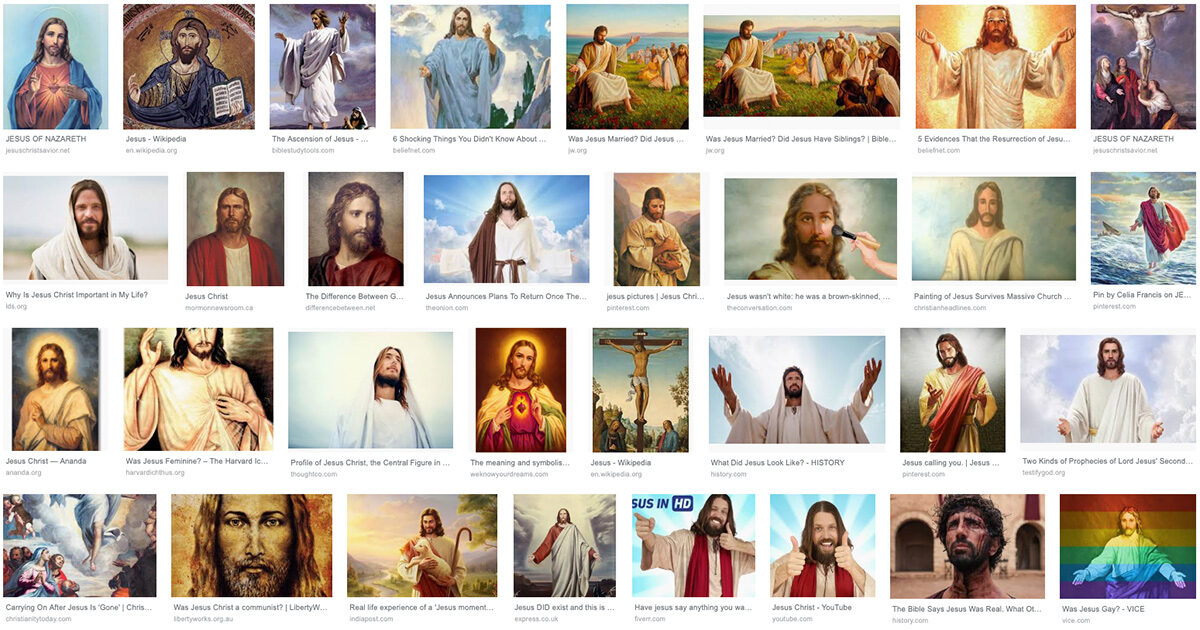
ART HISTORY
And in Art History, there is also a variety of ideas about this. Often the Jesus that is depicted looks like someone from your own geographical and cultural area. And from the classical period in art, it’s a known phenomena painters actually used self-portraits or used important persons as the model to depict Jesus.
 Portraits of Christ from the Dutch painter Rembrandt van Rijn
Portraits of Christ from the Dutch painter Rembrandt van Rijn
DEPICTIONS OF JESUS AROUND THE WORLD
It’s interesting to see how different the depictions of Jesus Christ differ for different cultures. The recognizable image of a fully bearded Jesus with long hair emerged around 300 AD. But that depiction became only established later, somewhere around the 6th century in Eastern Christianity, and much later in the West.

- Head of Christ (1941) Warner Sallman

- Japanese Christian Orthodox icon, late 19th-early 20th century
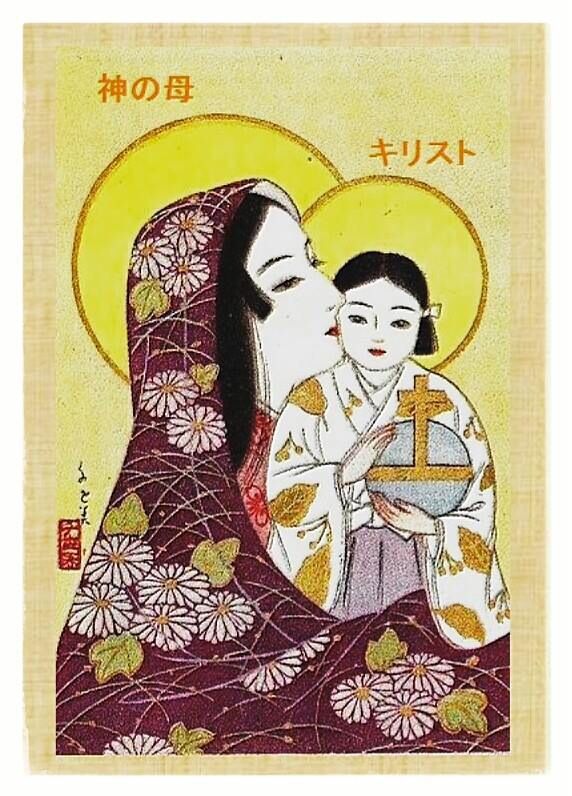
- Japanese Christian Orthodox icon, late 19th-early 20th century
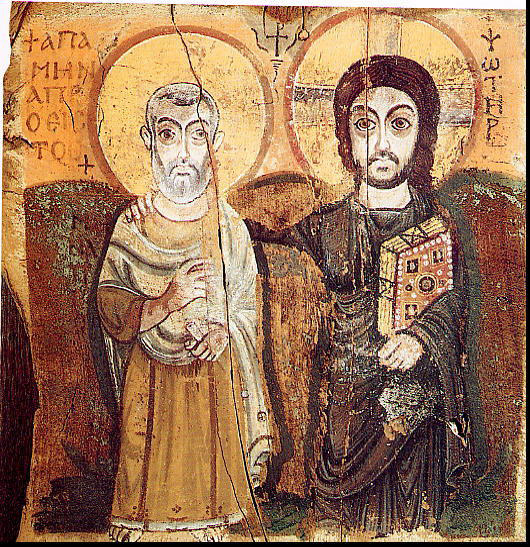
- Egypt: Christ and Saint Mina. 6th-century icon from Bawit, Egypt
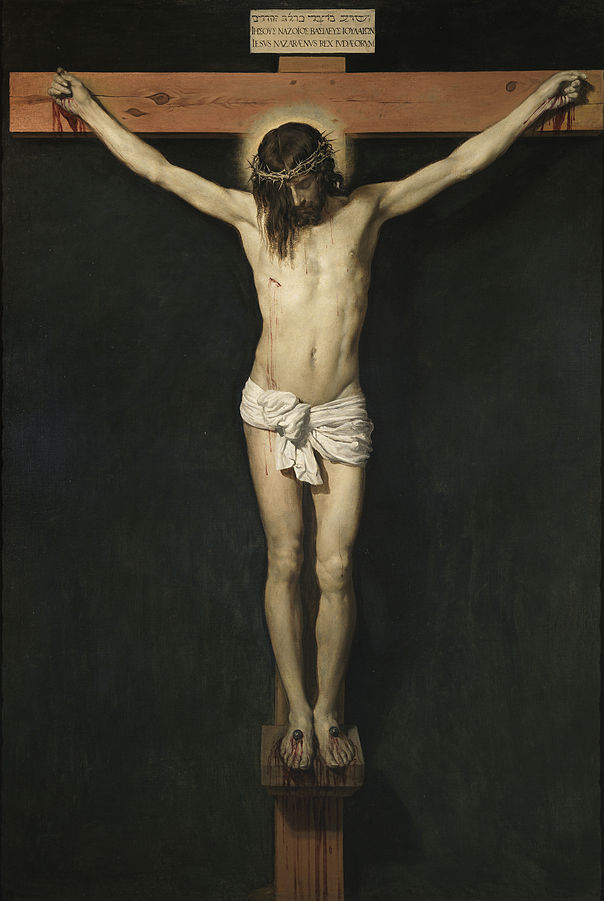
- Spain: Christ Crucified, 1632. Diego Velasquez

- China: Reconstruction of the Chinese Nestorian painting of Jesus Christ, 9th century

- Study for the Head of Christ
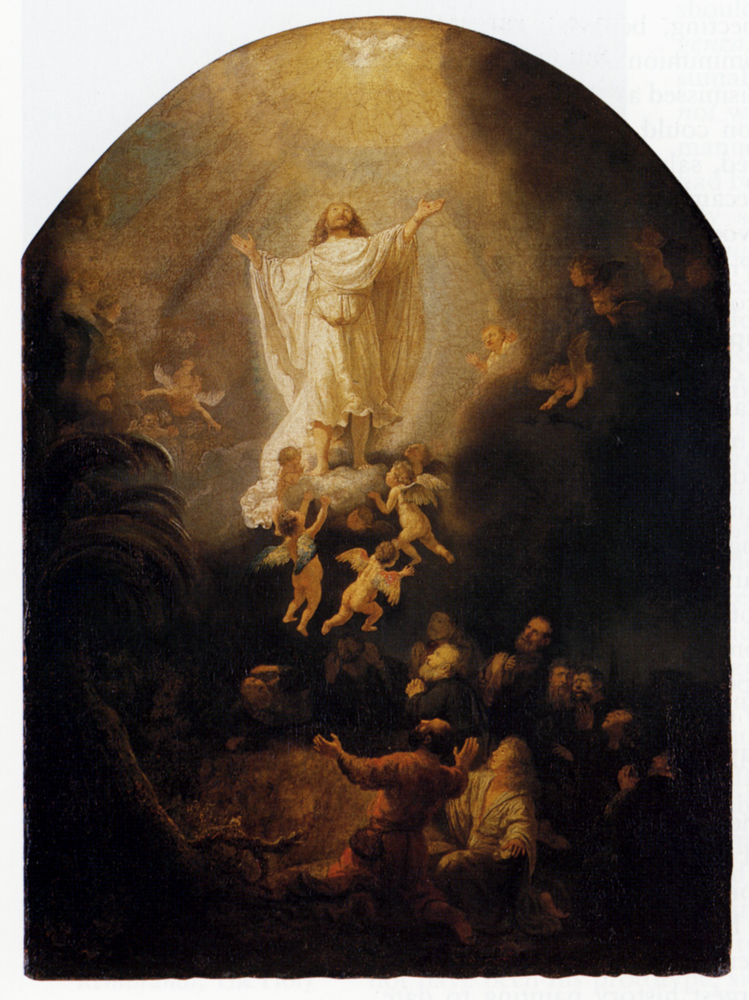
- The Ascension Of Christ by Rembrandt van Rijn (1636)

- Jesus depiction from Koreao. Woonbo Kim Ki-chang (c. 1950s)
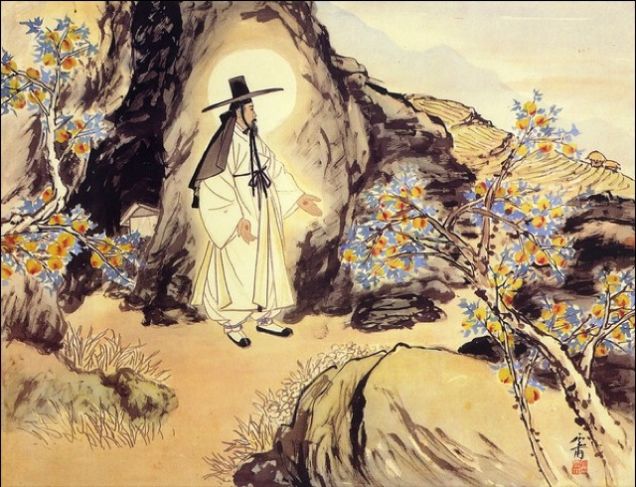
- Jesus depiction from Koreao. Woonbo Kim Ki-chang (c. 1950s)

- Jesus depiction from Koreao. Woonbo Kim Ki-chang (c. 1950s)
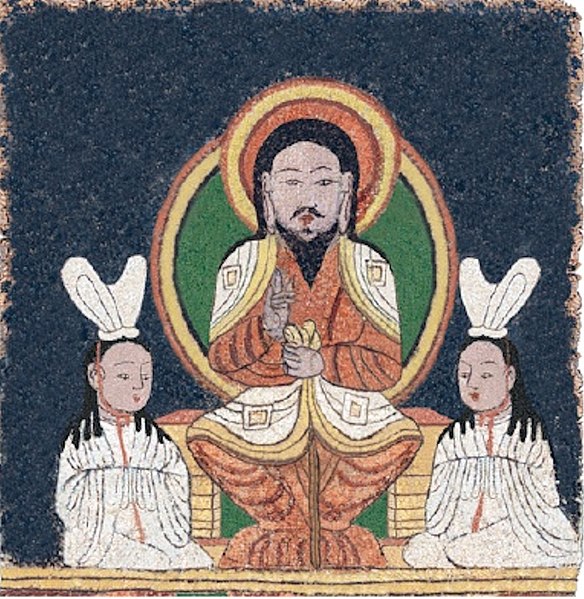
- Japan: Reconstruction of the enthroned Jesus image on a Manichaean temple banner from ca. 10th-century Qocho (East Central Asia)

- Ethiopia: St. George & the Virgin and Child, late 18th century
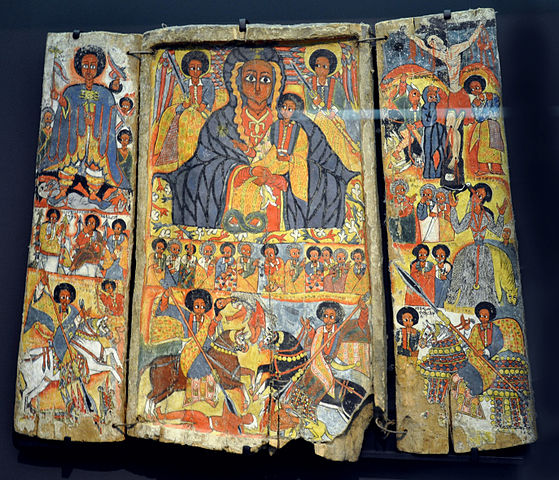
- Ethiopia: Great Triptych, c.1700
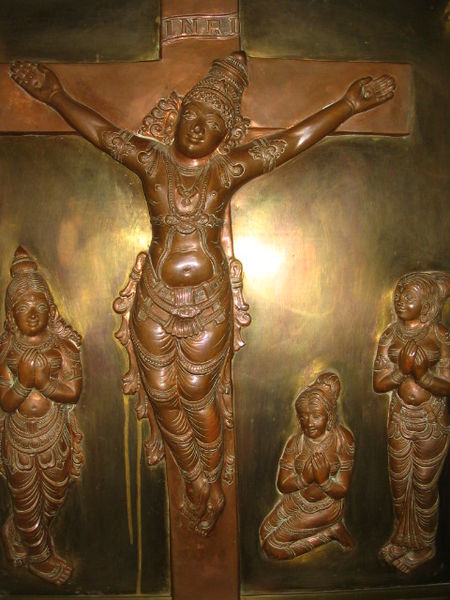
- Indian depiction op Jesus

- Indian depiction op Jesus

- Indian depiction op Jesus
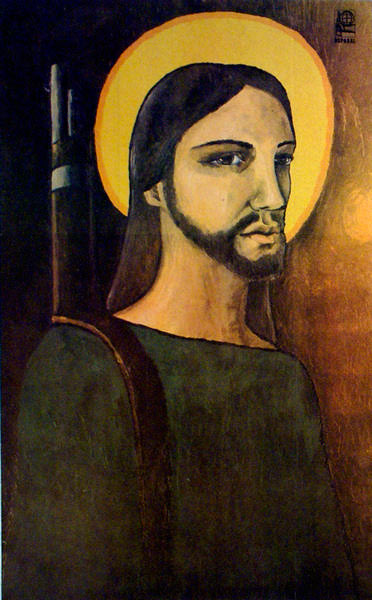
- Cuba: Cristo Guerrillero (1969), Alfredo G. Rostgaard

- Icon from Jesus, Russia
EARLY JESUS DEPICTIONS
In church, depictions of Jesus have been used for centuries. These depictions also influenced the idea we have of what Jesus looked like. The earliest depictions of Jesus date to at least two centuries after he died, but this doesn’t make this image credible for when you’re trying to figure out what He actually looked like.
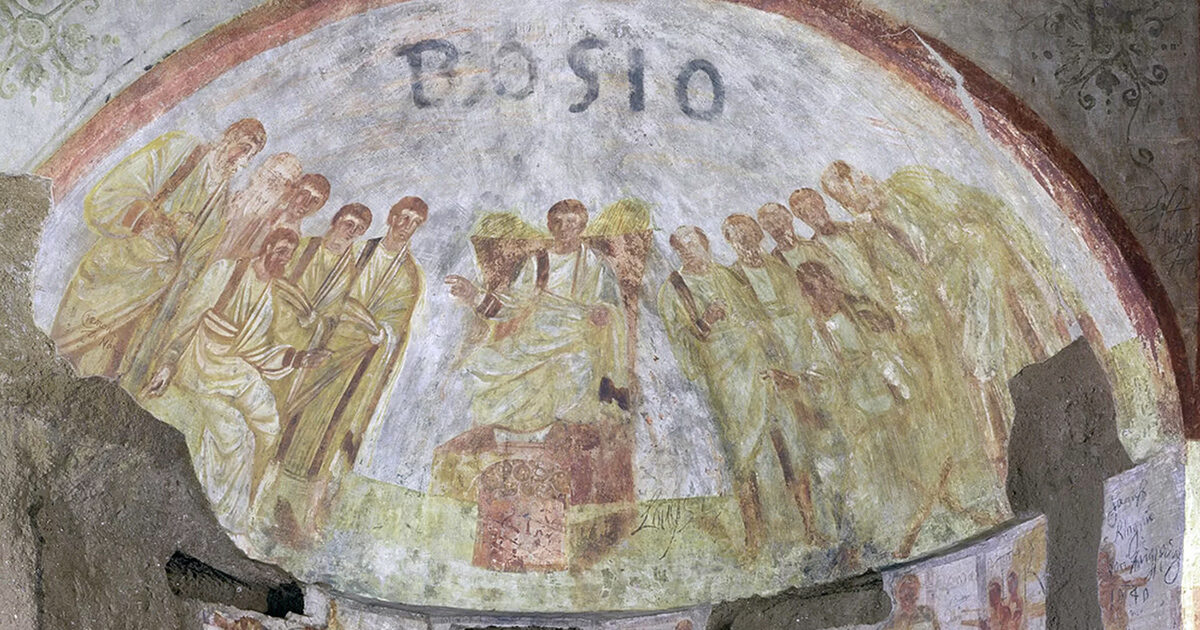
In the Bible, there is not much information about what Jesus may have looked like. Where as, for instance, King David is described as quite a handsome man and also Moses, the man who led the Israelites out of slavery in Egypt, is described as beautiful.
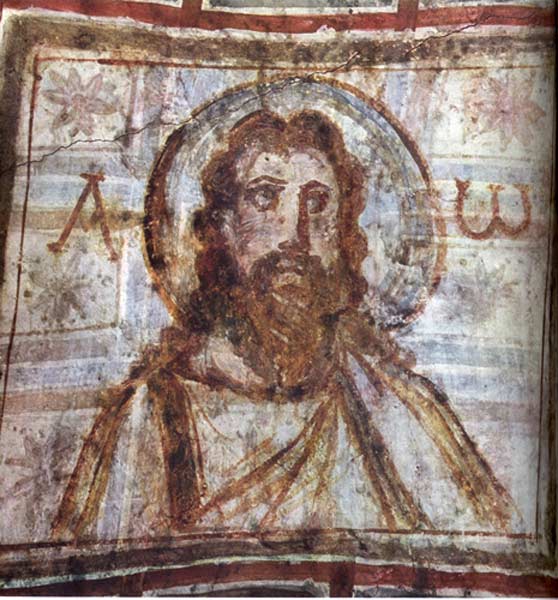
CAN WE ACTUALLY KNOW WHAT HE LOOKED LIKE?
Not fully, but we have an idea of what an average Middle-Eastern man looked like in the period 2,000 years ago. Lately, research was done in order to find an answer to the question of what Jesus could have looked like. Professor Joan Taylor, professor of Christin Origins and Second Temple Judaism (King’s College London) wrote a book about exactly this theme: ‘What Did Jesus Look Like’ (2018).
In the research by Professor Taylor, she concludes the average man in the time of Jesus was around 1.70 meters tall. People in Israel and Egypt tended to have brown eyes, black hair, and olive-brown skin. This she concluded out of archeological remains, historical texts and depictions of people from that period of time.
A habit of people in Judea, Israel, was that people tended to keep their hair and beards reasonably short and well-combed, probably to lower the risk of getting lice, which was quite an issue in that time. So, Taylor concluded, Jesus likely did the same.
Jesus is also described as a carpenter (which you can read in Matthew 13:55) and based on that, you can imagine he would also have the muscular statue of a workman. Don’t expect him to have a soft physique as a result of a soft life.
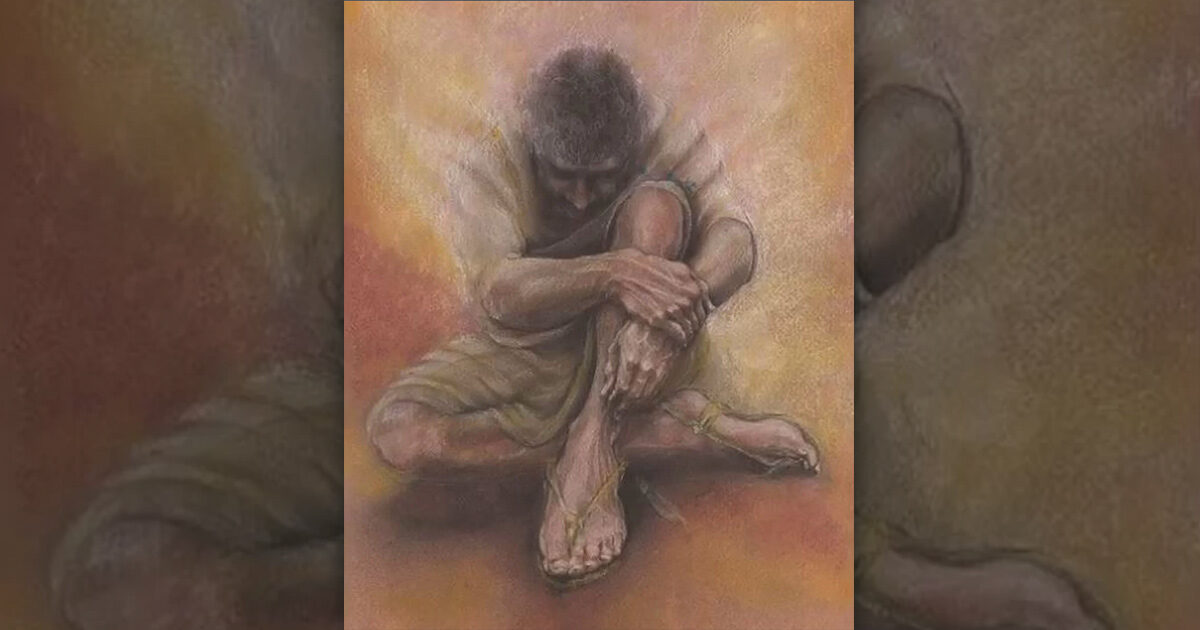
GALILEAN MAN
For the BBC documentary ‘Son of God’, forensic anthropologist Richard Neave created in 2001 a model of an average Galilean man.
This was done on the basis of an actual skull found in the region. Good to know: he did not claim it was Jesus’s face. It was simply meant to prompt people to consider Jesus as being a man of his time and place since we are never told he looked distinctive.
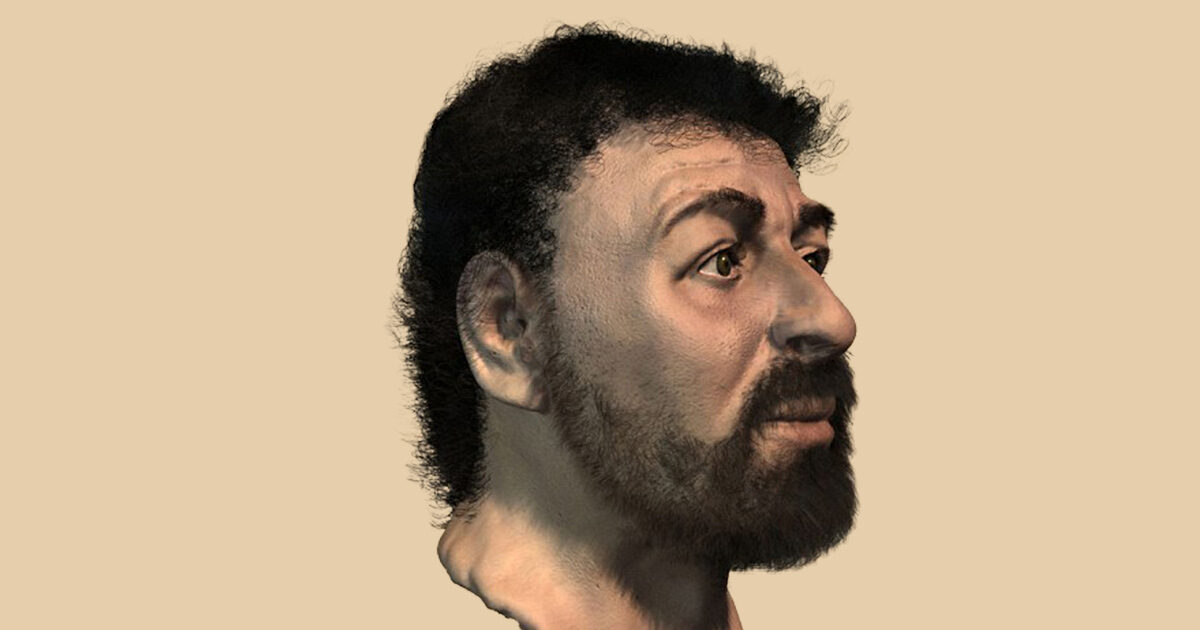
DOES IT MATTER?
It’s a good question to ask if it does matter what Jesus looked like. The answer depends. Some people say you don’t have to depict Jesus at all. They base that on the rule you can find in the Bible where it is forbidden to make an image of God.
Maybe this page helps you to get rid of preprogrammed ideas in your head. We all have our ideas, also about what Jesus looked like, but we’re not always aware of where these ideas come from.
Enjoy the variety of ideas people have when they make an image of Jesus. There’s beauty in the fact people try to depict him often in a way they see themselves or in the culture they understand.
In this way, you can connect with the man Jesus. And that’s great. You know why? It’s hard to understand who God is. The Bible tells us that God sent his Son into the world. Jesus was one of us. And when one time the friends of Jesus ask him if he can show God, Jesus replies: ‘Whoever has seen me has seen the Father‘ (John 14:9) where ‘Father’ is his way of talking about God.
So… Jesus is enough. He was one of us. He looked like us. But at the same time, He was so much more.
You need to be a member of Hey Papi Promotions Network to add comments!






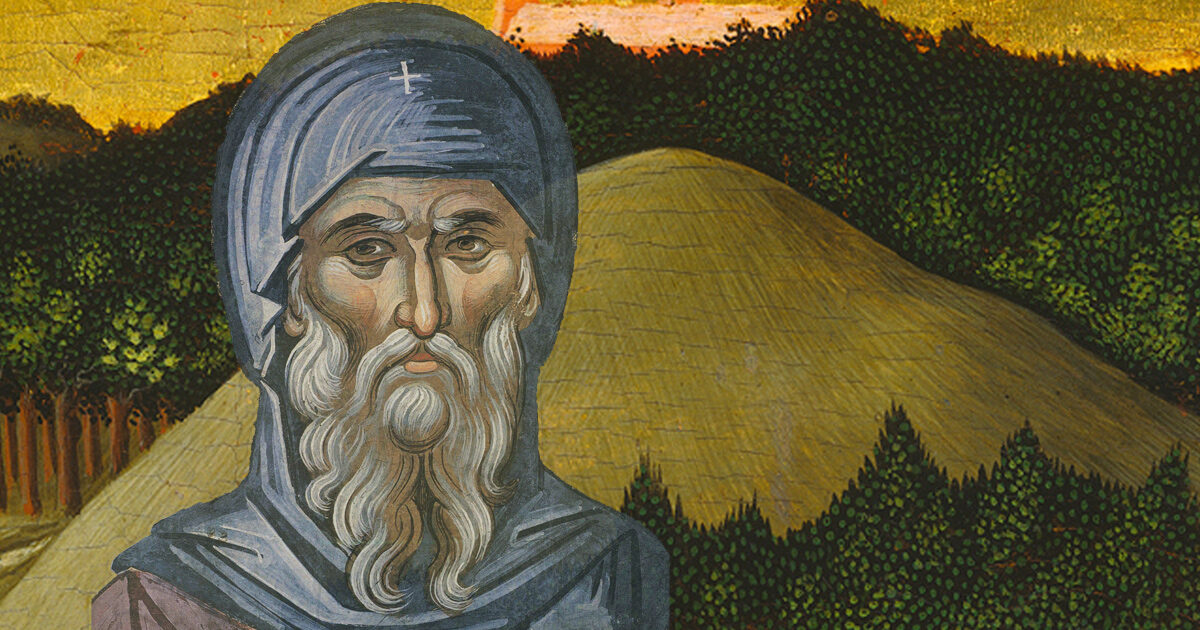

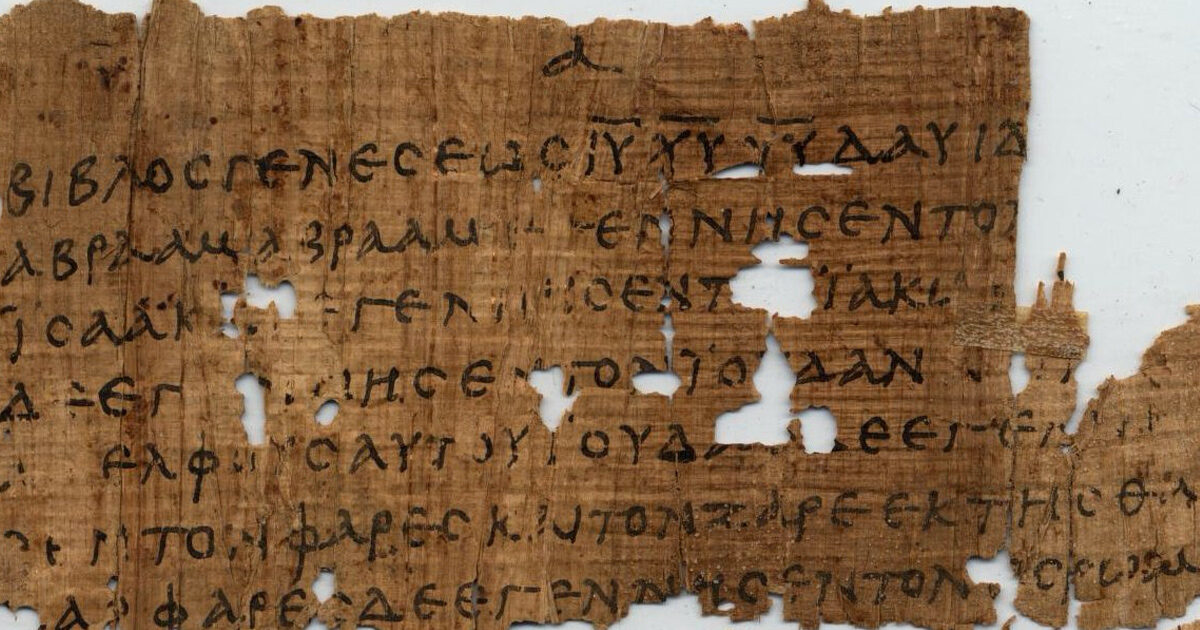



Replies